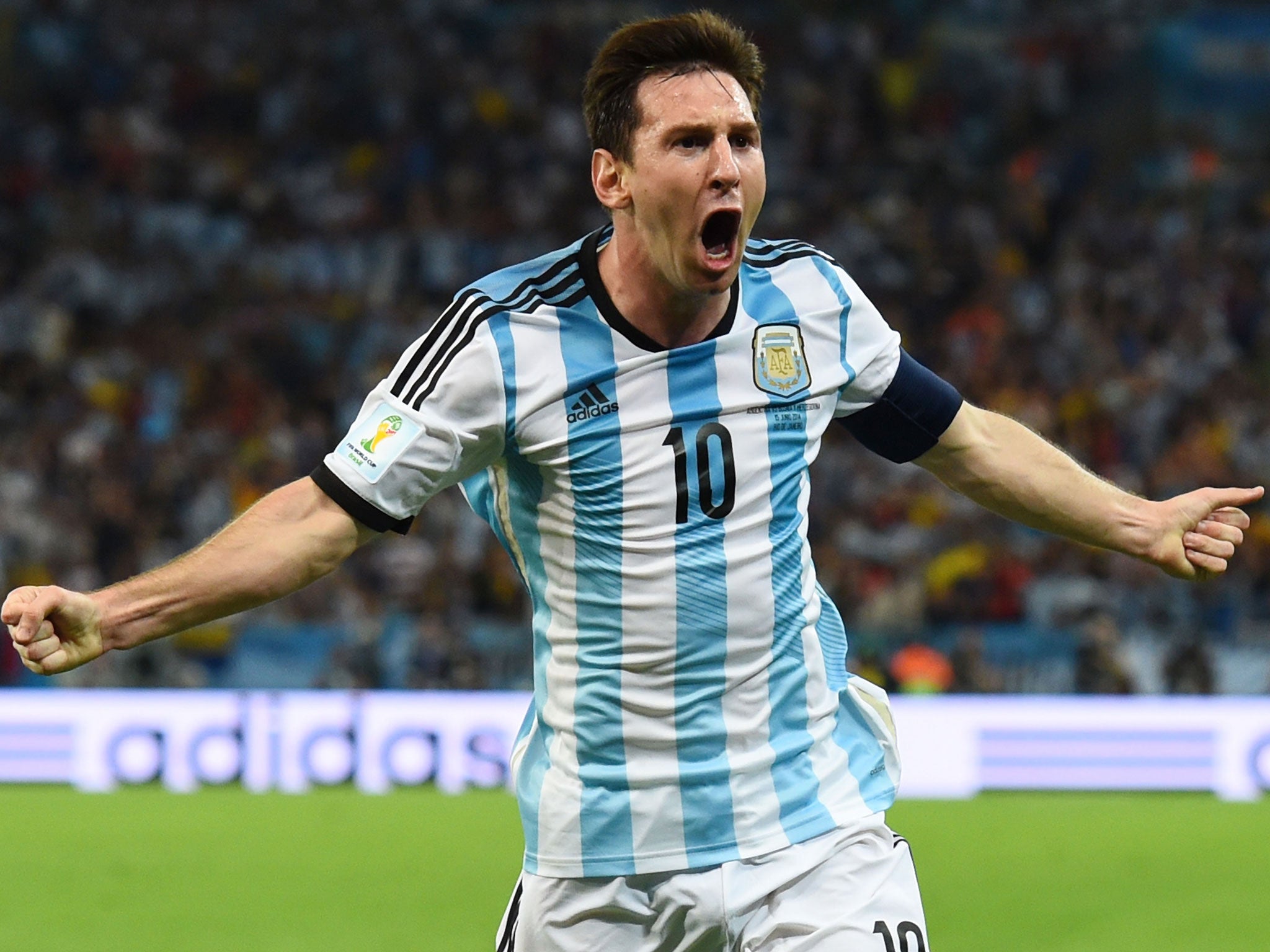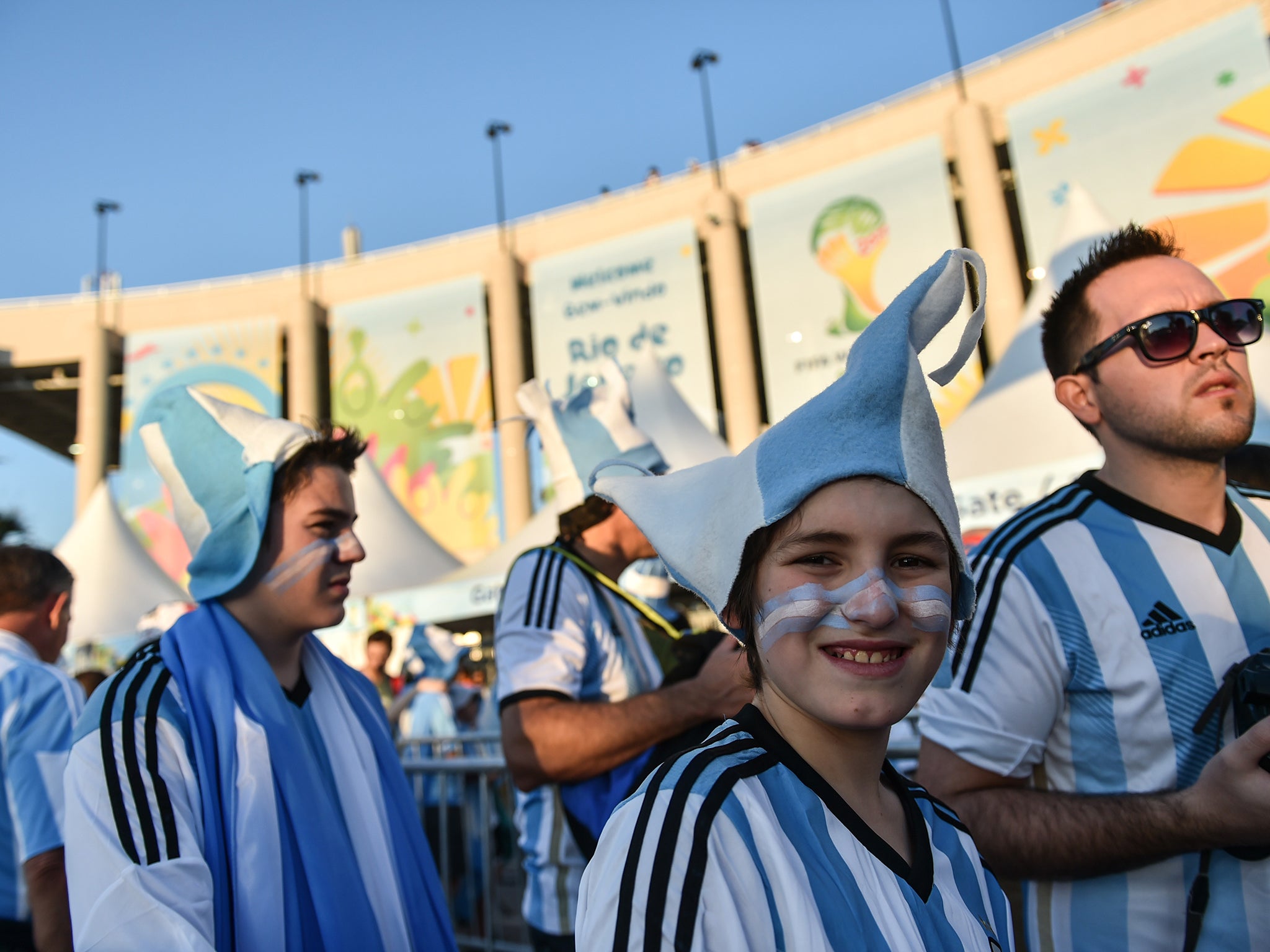World Cup 2014: Blue-and-white Argentina army invades Rio are are convinced Lionel Messi's time has come
The Barcelona forward had a subdued performance in Argentina's opening game before scoring a superb winner

Your support helps us to tell the story
From reproductive rights to climate change to Big Tech, The Independent is on the ground when the story is developing. Whether it's investigating the financials of Elon Musk's pro-Trump PAC or producing our latest documentary, 'The A Word', which shines a light on the American women fighting for reproductive rights, we know how important it is to parse out the facts from the messaging.
At such a critical moment in US history, we need reporters on the ground. Your donation allows us to keep sending journalists to speak to both sides of the story.
The Independent is trusted by Americans across the entire political spectrum. And unlike many other quality news outlets, we choose not to lock Americans out of our reporting and analysis with paywalls. We believe quality journalism should be available to everyone, paid for by those who can afford it.
Your support makes all the difference.“Y ya lo ve / y ya lo ve / El que no salta / es un ingles!” “Now you see / now you see / He who doesn’t jump / Is an Englishman.”
England should be flattered that Argentina’s favourite football chant, that had 70,000 of them shaking the foundations of the Maracana on Sunday night, takes the trouble to castigate them. What do they have to hate the English for, really? David Beckham’s supine sidefoot in to an strangely unstable Diego Simeone? Peter Shilton’s inability to outjump the floating hand of a man approaching a full foot shorter than him?
Of course, there’s the Falklands, but it’s clear now that the Argentina team’s highly controversial intervention on that delicate issue was just a diversionary tactic, a false flag to detract attention from the carefully planned invasion their wild army of fans has launched on an unready Rio de Janeiro.
Buenos Aires is a two-and-a-half-hour flight or a 40-hour bus ride from Rio, but to be on Copacabana over the past 48 hours you could be forgiven for imagining they could only have come via a D-Day style amphibious landing. The volleyball nets, the football goals that line that most famous stretch of sand are all daubed in the light blue and white of the Albicelestes, the caipirinha-serving kiosks rocking to Argentine chants, regardless of who is playing. Several of the fans have been found lying on the beach in the morning. “We can’t afford a hotel,” said Miguel Doran, “but we are not missing this. No way”.
On Sunday night, as the metro trains rolled up the length of Copacabana, huge numbers piled on at every stop, instantly joining in with the singing that did not stop for a moment as the trains turned north, towards that great football cathedral, the Maracana, in the city’s more authentic heart. “It’s the World Cup, in Brazil. And we are better than them,” said Fernando Fredrique, 26, from Buenos Aires. “Leo Messi – this is his moment. This is our time. Rio. The Maracana, this is our home now.”

On Sunday Messi did what he has failed to do at two previous World Cups and scored the kind of breathtaking solo goal he has done almost countless times for Barcelona. Afterwards he said the support had been amazing, but he was sure “it will be the same in Porto Alegre and Belo Horizonte”, where they play their next two matches.
Join our commenting forum
Join thought-provoking conversations, follow other Independent readers and see their replies
Comments